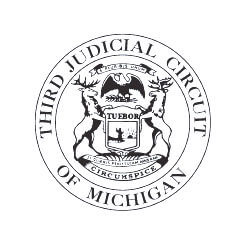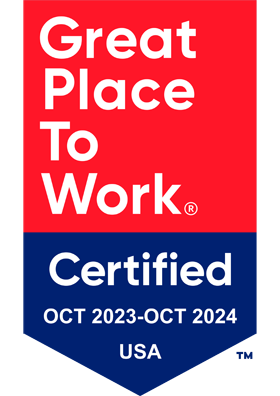Blogs
Nobody wants to fall behind the competition. Finding every conceivable way to boost your brand’s reputation is vital in today’s world of virtual information. To get there, you need to attract more visitors to your website content, and you need to be sure that your content is being seen in all the right places.
So, what is the best way to do this? What is the best way to boost YOUR SEO?
One of the most efficient and cost-effective ways to do this is by refining and perfecting your SEO efforts. You need to stand out, and you need to make sure that people searching the internet can find the content you want them to see.
Before schema can be fully effective, you should implement the foundational elements required for good Search Engine Optimization -- such as keywords in the title, description, URL and first paragraph. Creating crosslinks to relevant content and valid sources is also a very important first step.
But you can enhance these results with Schema.
We break it all down and help give you the knowledge and tools you will need, to make a dramatic difference for your content and your brand.
History of Schema and how it will help you.
So, what exactly is Schema and how can it solve your challenges?
Schema is additional programming code that is added around your content. It is sometimes referred to as “schema markup.” It’s information that is present behind the scenes and seen by Google’s search robots but does not affect the user interface for the site visitor.
Schema provides a template for your content. For example, if you are writing content about a medical condition, there’s a lot more to it than just a few paragraphs of content, with charts or illustrations. You could identify the content and give it more value by labeling information such as prognosis, complications, risk factors or symptoms.
Schema is one of the key strategies we have today that can help make sense of Google’s algorithms. Schema helps build the Knowledge Graph around a website user’s search terms, to help provide that user with additional, meaningful content. Google's Knowledge Graph provides a database of billions of facts about people, places, and things, creating the ability to answer more detailed, factual questions.
Enhanced content from the use of using schema markup could include specific services offered at business’s location, its operation hours or contact information. Without schema, Google would only recognize content on the page, it doesn’t understand what the content is saying.
Schema is meant specifically for use by search bots such as Google. With schema markup, bots can identify and make more use out of content like blogs, news articles, events, or physician listings.
Google Search Evolution – Understanding the beginnings of the world’s most popular search engine.
Google's rise to dominance started with their very popular "Page Rank" algorithm. If your page was linked by other important pages on the internet, it was likely that your page was also deemed important. This was simple but highly effective. So, to maximize their page rankings, marketers started working on ways to take advantage of Google’s system to improve their listings. And soon, everyone was doing it!
That in turn created a lot of noise around important content and caused a counterproductive result, causing that algorithm to no longer be effective. To avoid this, Google worked hard to always stay one step ahead.
Over the last two decades, Google has released several major additions to its search strategy. All of which have varying importance. However, we need to be aware what rules have been set.
Here’s a quick rundown of the updates Google has put in place through the years.
-
Panda: Improved the removal of duplicate or "thin” content from listings. So, any pages that were being created for Keyword Stuffing were policed. This update also helped cut down user-generated spam.
-
Penguin: Link Profiling put to an end the process of buying links from Link Farms and Private Blog Networks and did even more to help reduce the instances of keyword stuffing.
-
Hummingbird – This algorithm helped clarify results from voice search, answers to questions and stat check facts. The Hummingbird algorithm also made it possible for a page to rank for a query even if it doesn’t contain the exact words the searcher entered.
-
RankBrain: Google uses Machine Learning Automation for ranking, to help see patterns between unconnected complex searches.
-
BERT: BERT is the natural language processing (NLP) model. BERT helped Google better interpret natural language searches and understand context. This helped weed out poorly written content or content that lacked focus or context.
How can your business benefit from Schema?
With schema applied to your content, search bots now treat your pages as sources of rich, structured content. Because the bots now understand the content they are looking at, search results become richer, and more information about your product or organization will be shown upfront on its listing.
Relevance is a significant factor in determining the rank of the result on the search results page. Since Google has more information, the relevance of the result to the keyword increases, so these results should show higher on search engine results pages (SERPs). All these factors combine, which means more visibility. One thing to note is that traditional metrics of success may change. With more valuable content, showing on SERPs with better placement, the click-through rate and organic traffic to the site may decrease as users find the information they need right in the search engine results.
Alternatively, with rich content displayed upfront on SERPs, the quality of visits that result in click throughs is greatly improved so factors like conversion rates and time on site have the potential to be much higher.
How Schema is implemented, in 5 easy steps.
Let's look now into how to implement Schema on your website. Here are five easy steps you can use to get it done.
First, you must identify the areas of the website, which if improved, would be the most beneficial to your audience. These would be the core parts of the organization you are trying to market. As an example, using a hospital website, physicians, service lines, locations, and news may be a place to start, as these are the areas of the site that many visitors would be coming to most often.
Second, go to the Schema.org website and use their search tool to identify the right schema markup for your content sections. Schema.org was founded by Google, Microsoft, Yahoo and Yandex together and created to help bring all these great tools and research together. Its vocabularies are developed by an open community process.
For example: for locations, there will be tags to identify location name, hours, days open, directions, etc.
Third, Once the right schema is identified, use the Google Tag Manager to generate the JSON-LD dynamically. (See directions here for those steps) Yes. Google search can read the Linked Data Schema dynamically generated by JavaScript.
Fourth, head to the Google Rich Snippet Test Tool and enter the URL of your webpage. Follow the instructions and address any errors that Google identifies. If you don’t see any errors, you are good to go!
And last but not least, make sure to have a plan to revisit the schema strategy and improvise with new tools or schema definitions that may be better applicable for your content. Schema.org is constantly releasing new definitions that could be useful for your site.
Don’t worry about marking up every property. If you currently do not have information on a specific property, such as “Physician", that is not a problem. Schema is not an all or nothing choice. It’s ok to skip.
In the end, using Schema Markup will boost your SEO.
Making sure your content is seen and stands out in the crowded world of search engine results is a never-ending challenge. Marketers need to always be working to stay ahead of the competition. However, using Schema Markup is one of the best ways to accomplish these goals. Learning and taking advantage of all the great tools that Schema Markup has to offer, you can easily and quickly see results.



















